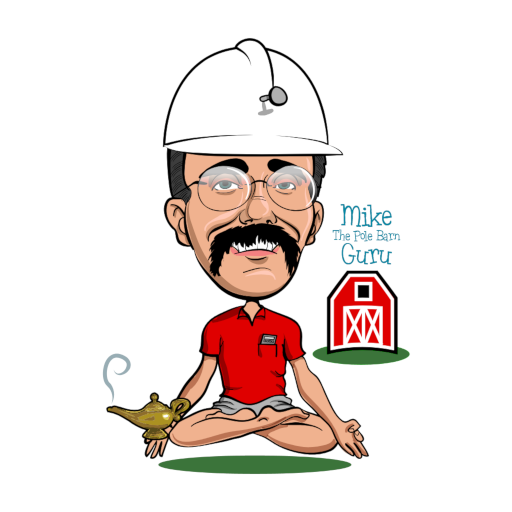We were at a vendor event for the DirectBuy in Beaverton, Oregon when a member approached us looking for advice on how to seal an existing concrete floor in her pole barn. It seems the floor is always damp.
I’ve always recommended placing an insulated vapor barrier beneath any new interior concrete floor. I’ve had great results personally with the A2V product available from www.buyreflectiveinsulation.com. For those who are too late, there is a solution.
Concrete floors are notoriously damp, as moisture will pass through concrete. Think of concrete not as a solid, but instead as being a sponge – albeit a very heavy sponge.
When a concrete slab floor is not sealed, the moisture in it becomes added humidity to the inside of your building. Over time, this will encourage the growth of mold, mildew, rot, and dust mites in your pole building, leading to damage to your building materials along with adding unhealthy allergens to your interior air space.
By sealing the concrete with a penetrating concrete sealer, moisture-related issues with concrete floors can be quickly and easily avoided.
 Concrete is a porous material which will accept water, moisture, and water vapor readily from the foundation soils beneath pole barns. This moisture can be passing through in the form of water vapor even when the slab floor doesn’t appear to be damp.
Concrete is a porous material which will accept water, moisture, and water vapor readily from the foundation soils beneath pole barns. This moisture can be passing through in the form of water vapor even when the slab floor doesn’t appear to be damp.
One way to test the amount of moisture passing through a slab floor is to lay a sheet of plastic on the floor for several days. If the surface under the plastic is damp, then there is evidence of moisture penetration through the concrete slab.
Along with moisture, water will bring a small amount of minerals with it. As the water passes into the air, this will be left behind as a mineral salt known as efflorescence, which appears on floors as a white, powdery substance.
A solution is a silane-based concrete sealer. These sealers penetrate deep into the pores of the concrete, activating with the minerals in the concrete to create a glass-like barrier deep within the concrete. They’re safe to use indoors, and contain little or no VOC’s (volatile organic compounds – brand depending).
A silane-based concrete sealer activates quickly, and can be applied to both cured and newly-placed concrete. It will not change the appearance of the concrete, efflorescence and acidity will not harm it, and the concrete floor is able to be painted over with ease. Installation is fast (done with a brush, roller, or sprayer), and they’re middle-of-the-road in overall cost.
There are several disadvantages to consider. One, a concrete sealer provides moisture control only, thus will not be able to breach cracks or stop flooding water. Second, it’s meant only as a sealer for water vapor which would otherwise pass through the pores of the concrete. Third, care must be used when installing as silane-based sealers cause etching on glass, should they come in contact with it. When installing, be sure to protect and/or avoid glass surfaces. And lastly, when installing be careful to only use enough silane-based concrete sealer to damp the concrete, as too much will leave a white residue behind.
Silane-based sealers are the ideal choice for concrete slab floors which are damp but do not flood, as they are inexpensive, install quickly and subtly, and provide a lasting solution.






